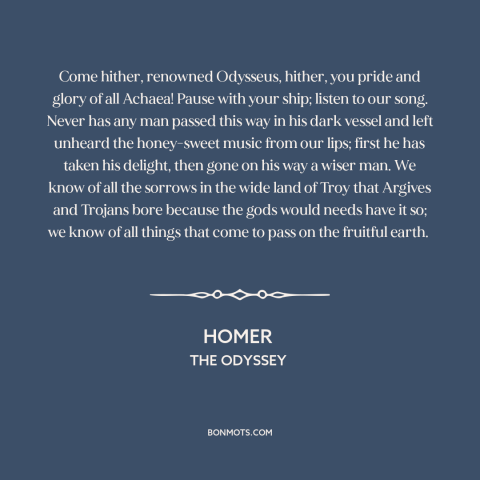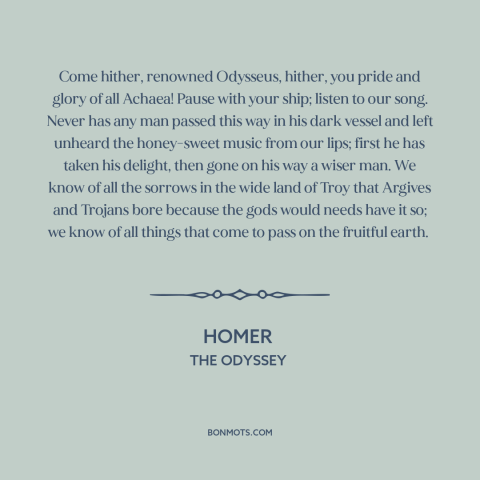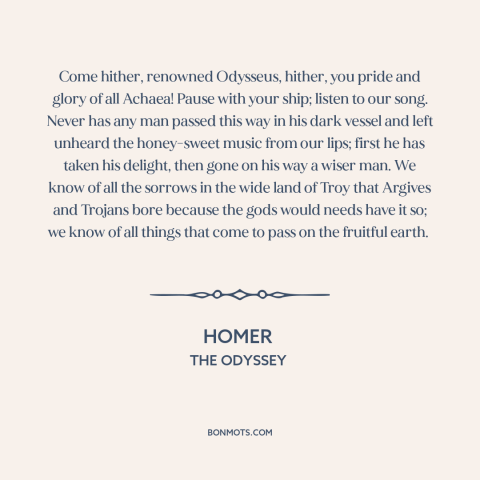Come hither, renowned Odysseus, hither, you pride and glory of all Achaea! Pause with your ship; listen to our song. Never has any man passed this way in his dark vessel and left unheard the honey-sweet music from our lips; first he has taken his delight, then gone on his way a wiser man. We know of all the sorrows in the wide land of Troy that Argives and Trojans bore because the gods would needs have it so; we know of all things that come to pass on the fruitful earth.
νῆα κατάστησον, ἵνα νωιτέρην ὄπ ἀκούσῃς.
οὐ γάρ πώ τις τῇδε παρήλασε νηὶ μελαίνῃ,
πρίν γ᾽ ἡμέων μελίγηρυν ἀπὸ στομάτων ὄπ᾽ ἀκοῦσαι,
ἀλλ᾽ ὅ γε τερψάμενος νεῖται καὶ πλείονα εἰδώς.
ἴδμεν γάρ τοι πάνθ᾽ ὅσ᾽ ἐνὶ Τροίῃ εὐρείῃ
Ἀργεῖοι Τρῶές τε θεῶν ἰότητι μόγησαν,
ἴδμεν δ᾽, ὅσσα γένηται ἐπὶ χθονὶ πουλυβοτείρῃ.
Authentication Score 2
Original Citation
Homer. Ὀδύσσεια [Odyssey]. c. 710 BC, bk. 12, l. 184-191.
Current Citation
Homer. The Odyssey, edited by Bernard Knox, translated by Robert Fagles. Penguin Classics, 2006, bk. 12, l. 184-191.



